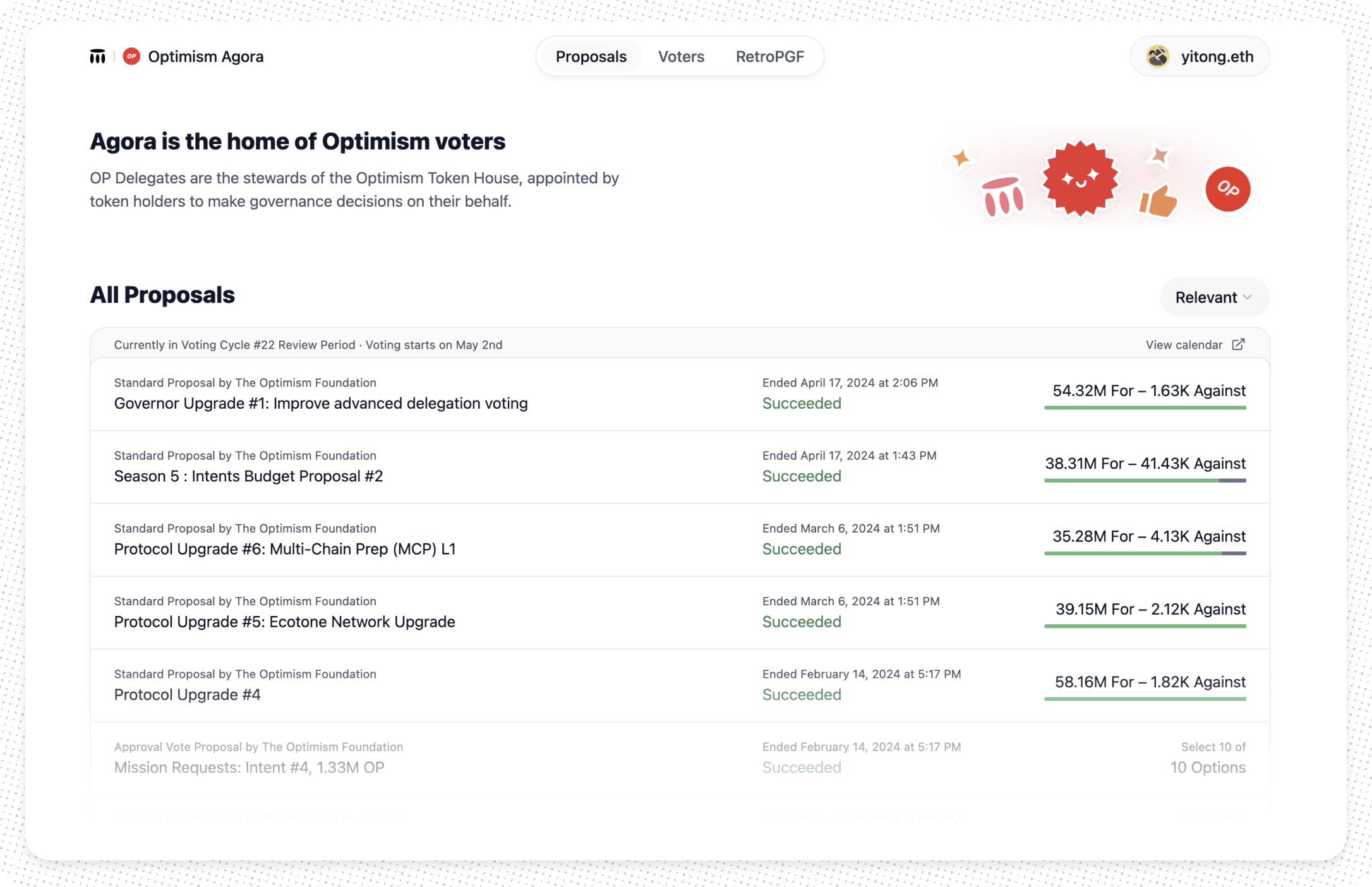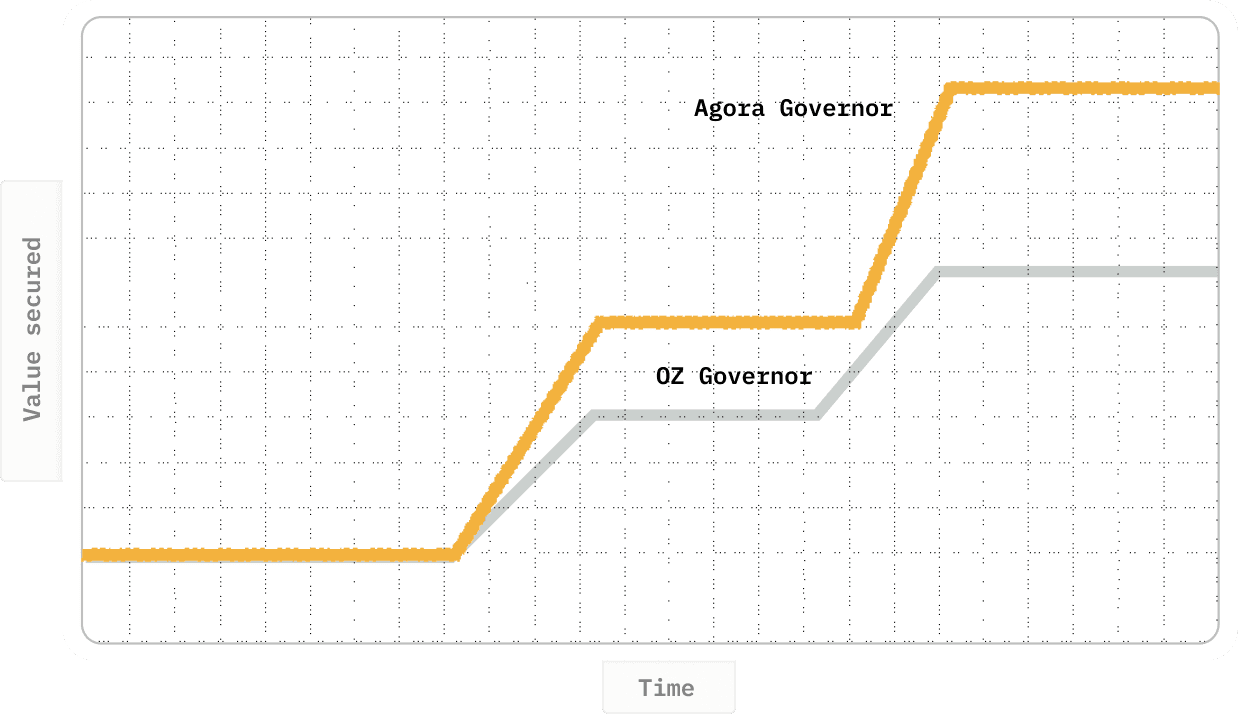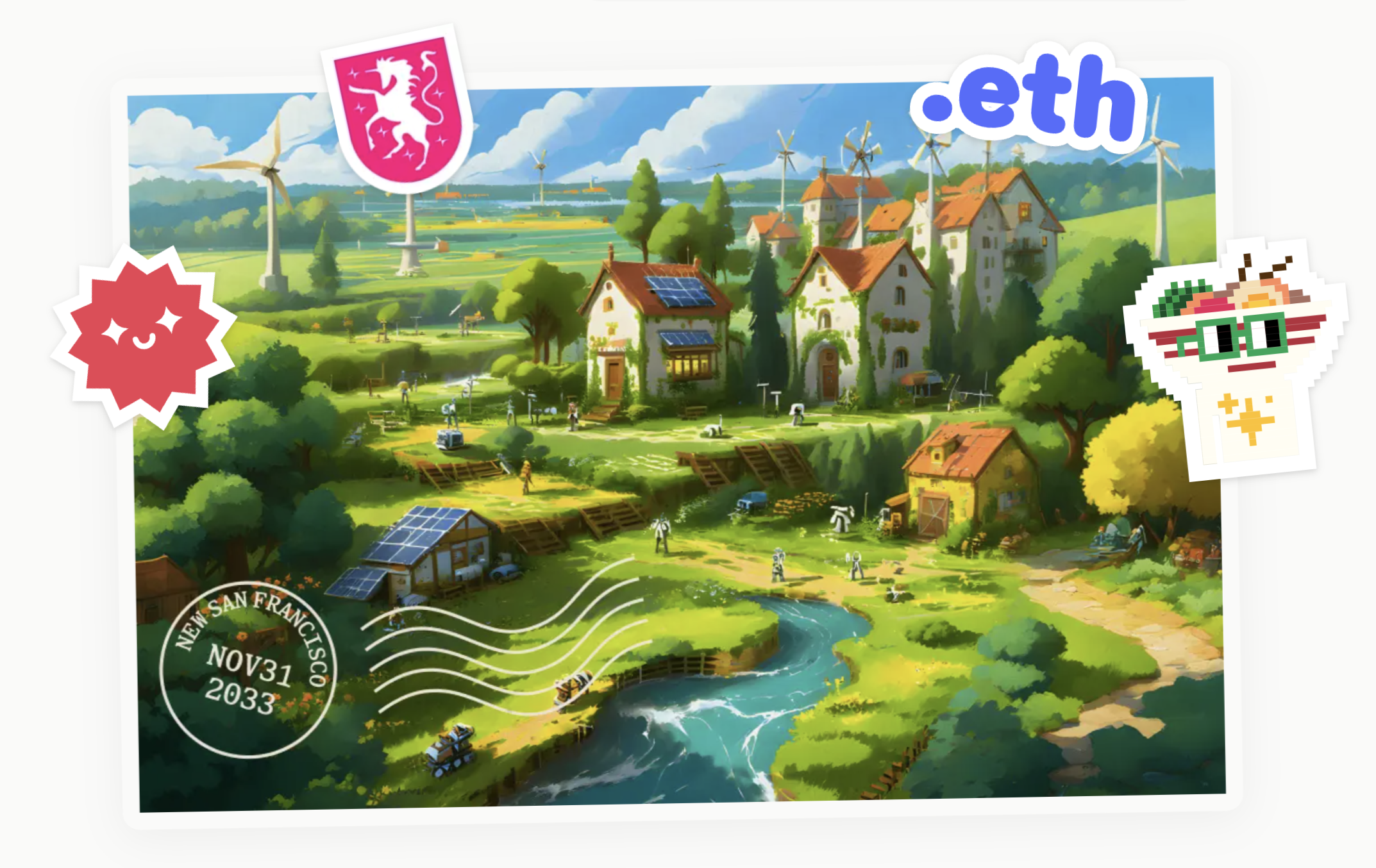Agora co-founder Charlie Feng on building compliance solutions for decentralized governance, and lessons he learned from his earlier startups.
In today's rapidly evolving digital economy, decentralized governance is emerging as a powerful new option over traditional corporate models. At the helm of this revolution is Charlie Feng, a seasoned entrepreneur and co-founder of Agora, a compliance and governance platform for the cryptocurrency ecosystem.

With two successful startups under his belt including Clearco, a cutting-edge data-driven lending platform, Feng brings a unique combination of technical knowledge, business acumen, and battle-hardened experience in scaling companies in high-risk sectors. During this interview, he describes the vision behind Agora, its design principles that drive it, and his vision for creating strong products and teams in a high-growth environment.
Interview Date: 6th August 2025
Charlie: At Agora, we’re building the governance and compliance layer for onchain protocols and communities. Like most startups, this was not a straight path, it took a few twists and turns before we stumbled upon this. But I always believed in working backwards from where you think the world should and ought to look like 10 years from now. Having built a fintech company that facilitated billions in lending, transfers across thousands of companies – I truly believe that our financial rails both need to evolve and will likely look something closer to blockchain technology.

Then working backwards from the technology, the same way blockchain allows you to send one-dollar securely, it also allows you to cast one vote securely. With this fundamental premise, we believe that a lot of governance decisions makes sense to be fundamentally onchain as well. These are typically high-stakes decisions similar to shareholder votes or board decisions – you want these to be immutable, transparent and secure. Which blockchain does really well!
Charlie: As you kind of mentioned, governments, governance, at the end of the day, it’s how do you… I think governance is a bit of a complex word, but it’s also a bit of a misnomer. At it’s core, governance is really just how a group of people make decisions. When you’re just a few people, it might be a simple raise of hands, once you’re a few hundred, maybe you have small committees or representatives. But it’s fundamentally how we make decisions as a group, and governance has existed since the beginning of time.
At Agora, we help many of the largest onchain communities run their governance. These are communities like Uniswap, Optimism, ENS with hundreds of thousands of tokenholders and communities controlling billions of dollars of capital allocation. These are also communities that are global by nature. And their decisions have real impact, and real financial consequences.
It’s actually not too different from a traditional company, similar to shareholders, we have tokenholders. But instead of centralized decision making in traditional companies with a board and CEO. A lot more of these decisions are decentralized, but as with any large group – the core problem is: “how do you make decisions efficiently, effectively and transparently at scale?” We work with these organizations to build the systems that enables this.
Charlie:
Agora’s core mission is to enable the next era of collaboration. We are creating software that bends current and creates new incentives, as well as automates governance. Right now, we’re focused on helping crypto communities like Uniswap, Optimism, and ENS coordinate on upgrades, funding, and long-term stewardship.

There’s really two ways at its core to increase output for a given organization, community or country even. Increase raw input of materials or improve the efficiency of how you use and coordinate everything. We’re more excited about the latter. I think in today's world, there’s so much inefficiency and waste when it comes to coordination of resources. At the core of coordination is governance – how you allocate capital and resources.
Over the next few years, we see this mission expanding beyond crypto. Our goal is to make on-chain collaboration accessible to anyone, so that people can work together seamlessly, automatically, and transparently, without even needing to know it’s on Ethereum. Ultimately, we want onchain organizations and tools to rival, and maybe even surpass, the efficiency and trust of traditional systems.
Charlie: Before we came to the scene, everyone had generalized solutions that “worked for everyone”. But every community is different. Our unique differentiation was being hyper-focused solutions for each of our customers. For the first 6 months of the company, we didn’t even have our own website. Even to this day, majority of our products live and are hosted directly on our customer’s websites. Because at the end of the day, it’s their community and their governance, we’re just a software tool. So we take our customer’s requests very seriously and we try to build solutions that makes sense for their business.
The flipside to that is then trying to find the shared parts of everyone’s needs and making sure there’s a coherent product strategy that’s scalable long-term. But it starts with the customer, what do they need for their community and how do we solve that.
Charlie: Design is one of those things I think a lot of people get wrong. For the longest time, myself as well – a lot of people think design’s purpose is to make things look pretty. But the best designers I know, especially product designers are much more experience designers than pixel pushers. Great designers are really product thinkers. They’re constantly thinking about the best way to help users accomplish their goals.
For us, that goal is oftentimes efficiency and transparency.
Charlie: It’s honestly hard to tell. We’re still early, so it’s hard to see if some of these design choices have panned out yet. So while I believe metrics are important, I think early-days, intuition is too and oftentimes overlooked.
One area we’re starting to see is bundling and unbundling of software. Maybe five years ago, in crypto or software generally, people would piece together five to seven different products: one for forums, one for voting, and so on. Now there’s a bit of consolidation. People just want one all-in-one tool. They don’t want to go to three different sites or use three different tools. So we’re leaning into that. But even this is mostly driven by customer demand.
Charlie: If I had to describe it in one word, it’d be: Trust. Agora is usually perceived as the trusted solution where their community can rely on for important decisions. And I do believe a lot of this comes down to brand and design. I think a lot of this isn’t just a website, it comes down to every aspect of the customer journey.

For us, we’re very intentional all the way from the initial interaction such as a website or deck to the way we run our demos to how our contracts look like. Even something as boring as an MSA contract is designed with care, as much as you can give a legal document. To us, good brands are consistent and consistency means not just what the customer sees but it’s how the product works end-to-end, whether it’s visible to the customer or not.
Charlie: A lot of battle scars and war stories. My first startup was a couple of years out of university, an AI startup before there were LLMs. It was my first taste of venture and how business works. I was naïve, so it was eye-opening. Ultimately failed, but a key lesson there was learning to build something people truly care about, and getting early feedback to iterate quickly.
My second startup was Clearbanc (today rebranded to: Clearco). We were one of the first data-driven capital providers in North America, underwriting businesses using Shopify and Stripe data instead of traditional credit scores. Product-market fit was really strong in e-commerce where businesses often need working capital to grow but they were asset light in nature so it was a segment of the market that banks and traditional lenders overlooked.
Charlie: I would say it’s not selling. And by selling, I don’t mean the money is the important part, that comes later for revenue, but early on, charging someone $100 or whatever you charge isn’t going to pay the bills anyway.
The important part of charging money is to get high-fidelity feedback in the early stages as quickly as possible, to de-risk the riskiest part of your business. A lot of people avoid that and instead tackle the easier parts. Engineers will overbuild because they love shipping code. Designers will overdesign. But they don’t address the most risky question: does my customer really want this?
The best way to test that is to show customers what you have. There’s a trade-off between how much fidelity you put into your MVP and the quality of feedback you get. If you pitch only an idea with no fidelity, friends will say, “Yeah, that sounds great,” but it’s not helpful. Show them a Figma mock-up, and you’ll get more feedback. Build a true MVP, and you’ll get even more. The highest level is charging them. Once someone has to put in their credit card, the real feedback comes through.
Charlie: I don’t think there’s a magic formula. I wish there was. Market selection and testing for product-market-fit is probably the single most important job you can be doing as a founder.
The classic saying of “it’s better to find 10 customers who love you than 1000 who kinda like you.” Switching cost is high, lukewarm products will never take off. You really need products that your initial set of customers love.
Lastly, it’s underestimated how important it is to pick a market you’re excited about. People underestimate that. Startups are a grind, you’ll be in it for years, often 7 to 10 years before seeing real success, so you have to want to work on it that long.
Charlie: “Speed, quality, cost, pick two.” You can have speed and quality, but it’ll probably be more costly.
But I think the better question to ask is: “what matters to your customers?” It really depends on the business you’re in. Are you in a space where you can afford multiple iterations, or does your first release to a customer have to be right?
For us, in B2B compliance, I don’t want to iterate on regulatory rules. I can’t say, “Sorry, the compliance forms we gave you were wrong, here’s a fix.” That erodes trust. So for us, there are certain product features where quality is non-negotiables, like votes can’t fail.
But if you’re in B2C or social, you can ship fast, fix things tomorrow, and speed might be worth the trade-off.
Charlie: It’s impacted more the way I think about business and team building than it does product development per say. More parallels in Starcraft 2 or DOTA and business than you might think!
Charlie: I haven’t played many new games recently, still on some old ones, but two stand out. One is RuneScape, which I played as a kid and didn’t even realise was still alive. The company is actually crushing it, with revenue growing every year, over a billion dollars now, and a loyal player base.
The other is Riot Games. Their investment in ecosystem and community is huge. They’ve gone beyond gaming into media, Netflix’s Arcane, K-pop collaborations, great music. Most gaming companies won’t touch that, but Riot has done it tastefully and effectively. Every time I watch Arcane, I want to play the game.
Charlie: I haven’t done a lot of formal advising, but I’ve invested in over 50 early-stage startups. Many have changed a lot, including Agora.
One that impressed me is EvenUp, a legal tech startup. They started closer to a Clearbanc model, but later realizing their real value was in the AI software they were building. They pivoted to selling the software, moving from a capital business to a software business with much better margins. Their team is also killer, great execution in that transition and scaling beyond.
Charlie: It depends on the stage. Later stage, I care more about metrics, is the go-to-market engine working, is the product working?
At the co-founding stage, when there’s maybe just the start of a product, my investment is a bet on the people. I look at three things:
Charlie: Funding in general is back on the rise after cooling last year, especially around AI.
San Francisco has far more capital and investors, so your odds of raising are better there. That said, I’m optimistic about Canada. Many angels who lived in SF are moving back and committing to building the Canadian ecosystem.
The talent is there, and we’re starting to see it grow. Many great schools and founders coming out of Toronto, Waterloo and of course my alma mater McGill as well. We’ve seen a number of Unicorns coming out of Canada or Canadian founders, I think Canada will grow a lot in the next 10 years.
Charlie: So many exciting areas, it’s honestly a great time to be a founder and building businesses because I think the cost to start has gone down over 100x since 2 decades ago. What needed hundreds of thousands to just build an app, can now be vibecoded in a weekend. So it’s a great time.
In general, I think the way I’d approach areas is (1) what are you personally excited about and passionate about and (2) based on how quickly everything is evolving, one important part is making sure what you’re building is compatible for GPT-10. Build it in a way where as models and AI improve, it’ll better your product – not destroy your product.

Charlie Feng's mission is an example of perseverance, adaptability, and the concept that trust underlies lasting products. With Agora, he is applying those principles to one of the most challenging issues in technology, creating fair, secure, and scalable governance systems for decentralized organizations.
Agora Website: agora.xyz
Charlie Feng on LinkedIn: https://www.linkedin.com/in/charliecf
Charlie Feng on X (Twitter): https://x.com/charliecfeng
Supercharged Studio is a creative technology agency that crafts websites, apps, logos, and brands. We help emerging innovators, industry leaders, hustlers, and dreamers create a competitive edge through design.
Your ideas will like it here.
